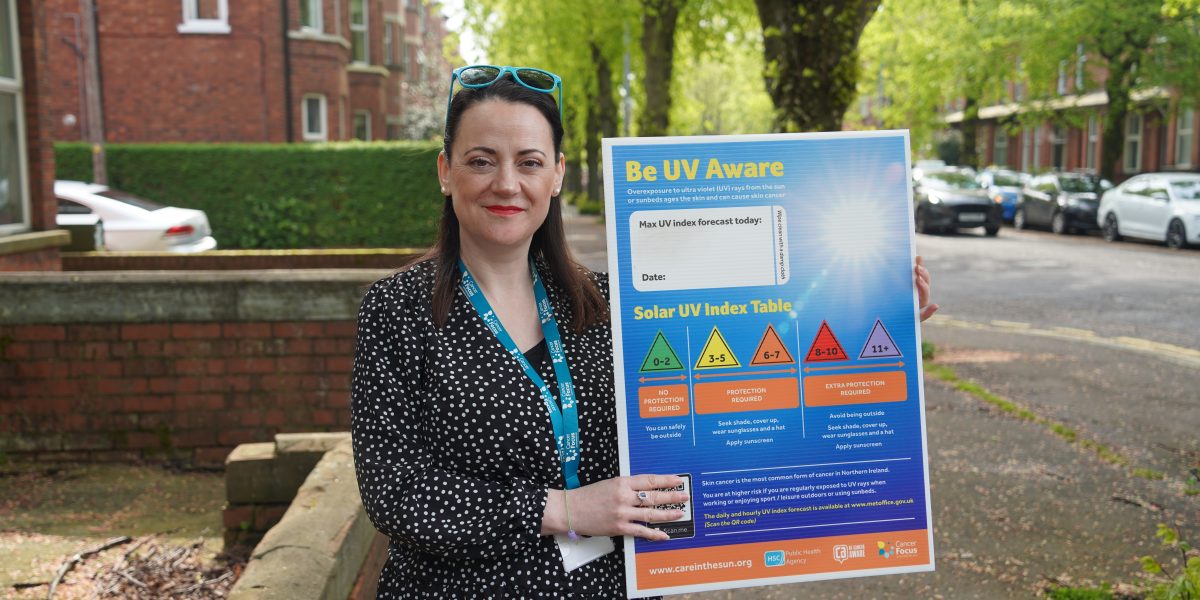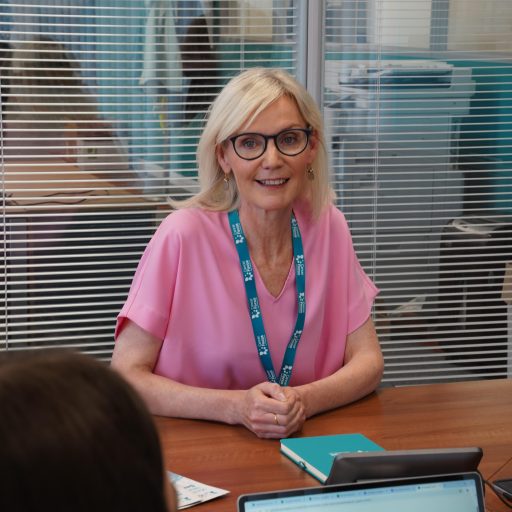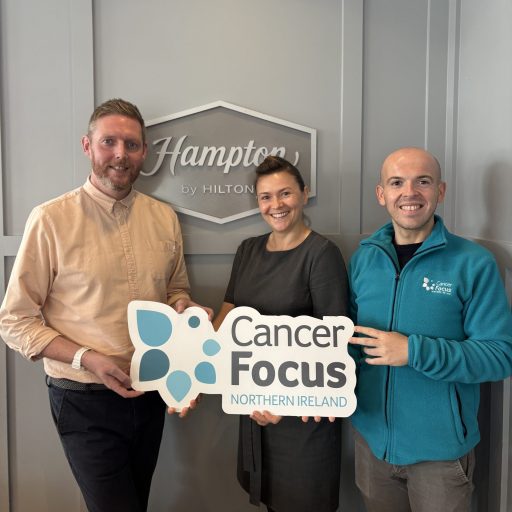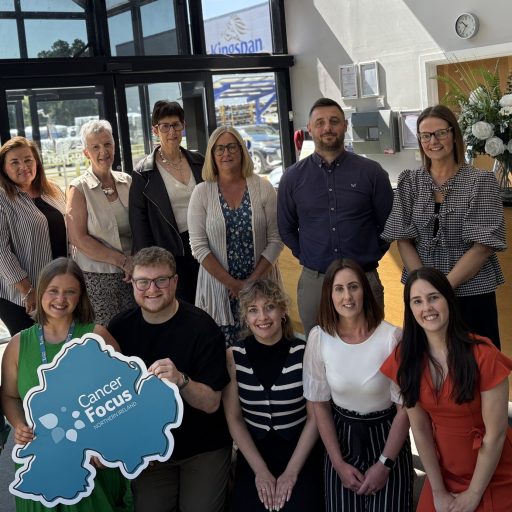
Sun Awareness Week 2025: Protect and check your skin
This Sun Awareness Week [12-18 May], the Public Health Agency (PHA) and Cancer Focus Northern Ireland are encouraging everyone to protect their skin from UV damage and also check it regularly for signs and symptoms of skin cancer.
Frances Dowds, Health and Wellbeing Improvement Manager at the PHA, said: “It’s great to see and feel the sunshine during the spring and summer and we hope to see plenty of sunny weather over the coming months.
Sunlight helps provide our bodies with vitamin D, supports bone health, lowers blood pressure, helps prevent disease and promotes good mental health. However, over-exposure to UV radiation can damage skin and the majority of skin cancers are caused by over exposure to UV radiation.
Skin cancer is the most common cancer in Northern Ireland and accounts for over 31% of all cancers diagnosed. Over 4,000 people develop skin cancer each year and almost 1 in 10 of these are malignant melanoma, the most serious form. Malignant melanoma rates have risen over the past 40 years from an average of 103 cases per year in the mid-1980s, to 424 cases in recent years.
The majority of all skin cancers are preventable by undertaking simple sun protection measures.”
Protecting skin from damage is really important but it’s equally important to check your skin for damage. Early detection and treatment of skin cancer can dramatically improve outcomes. Most cases of skin cancer are treatable, especially when caught early.
Doreen Regan, Skin Cancer Prevention Coordinator at Cancer Focus NI, said: “Regularly examining your skin for any new or changing moles, spots, or lesions is crucial in detecting skin cancer early.
Checking your skin regularly, ideally once a month, could save your life.
Get someone to help you check areas that are difficult to see, like your back and the backs of your legs. Don’t forget the soles of your feet, between your toes, your scalp, neck and nails. Always remember, know your skin and know what is normal for you.”
Common signs and symptoms include a new growth or sore that does not heal in 3-4 weeks. Look for anything that is inflamed, growing, bleeding, crusting, red around the edges, particularly itchy or painful, or changing in any way.
It is normal to have freckles and moles. Most moles develop in childhood and adolescence. If, as an adult, you notice a new mole on your skin or if you notice any changes to an existing mole then get these checked by your GP.
Top tips for protecting your skin from cancer:
- Check when you are most at risk from UV radiation. Levels of UV radiation are highest in Northern Ireland between March and October – even when it is cool or overcast.
- If you are going outdoors, check what the UV index will be throughout the day. You can check daily and hourly UV index forecasts via most weather apps on your mobile phone.
Help protect your skin when the UV index is 3 or more by following this guidance:
- Stay in the shade between 11.00am and 3.00pm, when UV rays are strongest.
- Cover up with suitable clothing.
- Wear a broad brimmed hat and sunglasses with 100% UV protection.
- Buy sunglasses that have a CE mark or carry British Standard BS EN ISO 12312-1.
- Use sunscreen on exposed skin; an SPF of at least 30 and UVA 4 stars as recommended by the Department of Health and National Institute for Health and Care Excellence.
- Babies under six months should stay out of direct sunlight. If exposure to sunlight is unavoidable, apply a small amount of high protection sunscreen to exposed areas, such as the cheeks and back of the hands. For children over six months choose SPF 30 or SPF 50 to protect against UVB rays and minimum UVA 4 stars. Higher SPF will give more protection.
- Avoid sunburn by never allowing your skin to go pink or red in the sun. Sunburn doesn’t have to be raw, peeling or blistering skin; for people with darker skin, it might feel tender, irritated or itchy.
- Choose and use the correct amount of sunscreen – an adult needs six teaspoons distributed evenly on the body with an SPF of at least 30 and UVA 4 or 5 stars.
- Avoid sunbeds – they can cause over exposure to UV radiation.
- Check your skin at least once a month, be aware of any changes, and speak to your GP if you notice any mole changes, new moles or abnormal skin changes.
To find out more visit www.careinthesun.org
If you are concerned about skin cancer you can call the Cancer Focus NI free information and support NurseLine on 0800 783 3339 or email one of the charity’s nurses on nurseline@cancerfocusni.org







